Campaigners from Bristol joined thousands of protesters for a march from the Albert Embankment to Parliament Square in London on November 3. The March for Clean Water brought together anti-pollution groups from around the country, who continue to petition the government and call out water companies for dumping sewage into rivers. HANA News Bristol reports.
Colourful banners, cries of “No more poo!” and a sea of blue shirts flooded the banks of the Thames in Westminster at the weekend. Protesters watched public speakers on stage and short films from a big screen in the shadow of Big Ben and Parliament.

The Surfers Against Sewage charity in London
People from all walks of life and ages were seen in the capital protesting against sewage in the rivers Mersey, Medway, Ouse, Usk, Avon, Eden, Windrush, Wye, Wear, Colne, Clyde, Forth, Stour, Nene, Tay, Tyne, Trent, Tees, and Dee.
If that list doesn’t shock you, that is only a drop in the ocean (or inland waterway) of the 100 organisations in Parliament Square on Sunday.
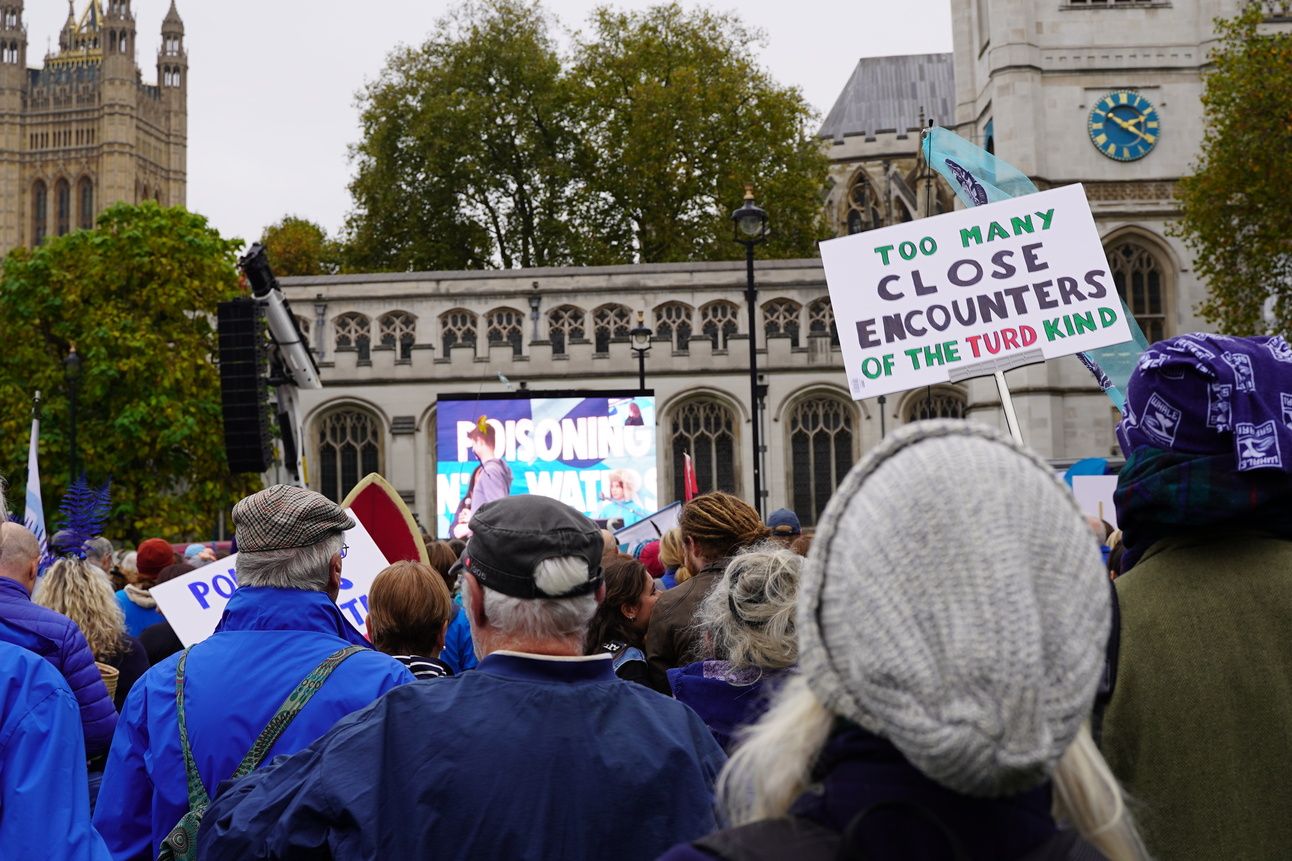
Protesters listened to speeches and watched short films
Campaigners brought samples from their local waterways to show the state of pollution around the country. In 2023, water companies in England discharged untreated sewage into rivers and coastal waters for a record 3.6 million hours, a significant increase from 1.8 million hours in 2022.
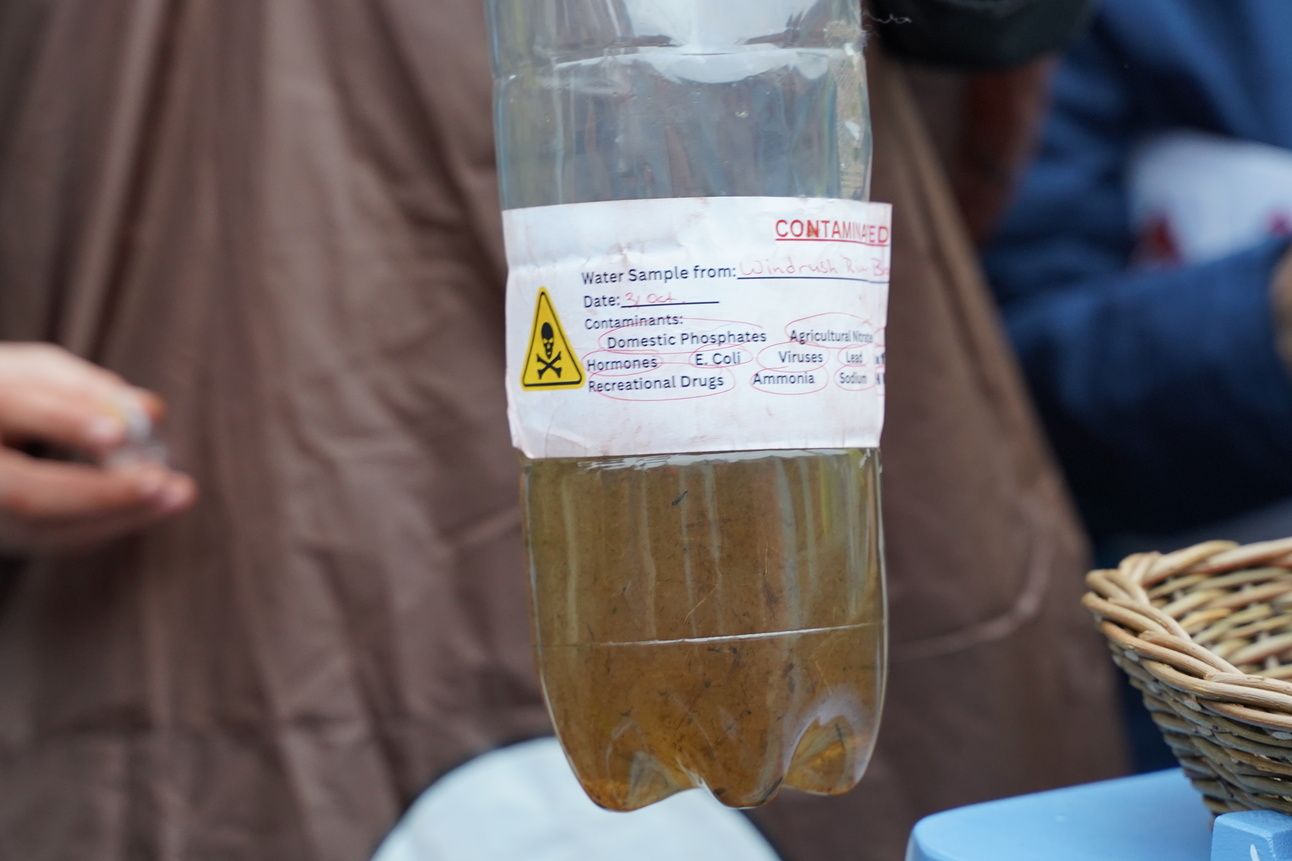
A polluted sample of the River Windrush
Bristol and the Thriving Avon Charter
The Conham Bathing campaign has been testing the quality of the River Avon since 2021. In February 2024, raw sewage flowed into the River Avon for a combined total of 8,164 minutes - more than five and a half days.
In 2023, Wessex Water discharged sewage into the Avon for 26,757 minutes, meaning that February 2024 alone accumulated over 30% of the total sewage discharge time from the previous year.
During heavy rainfall, the antiquated sewage system managed by Wessex Water can overflow which causes raw sewage to be discharged into the river.
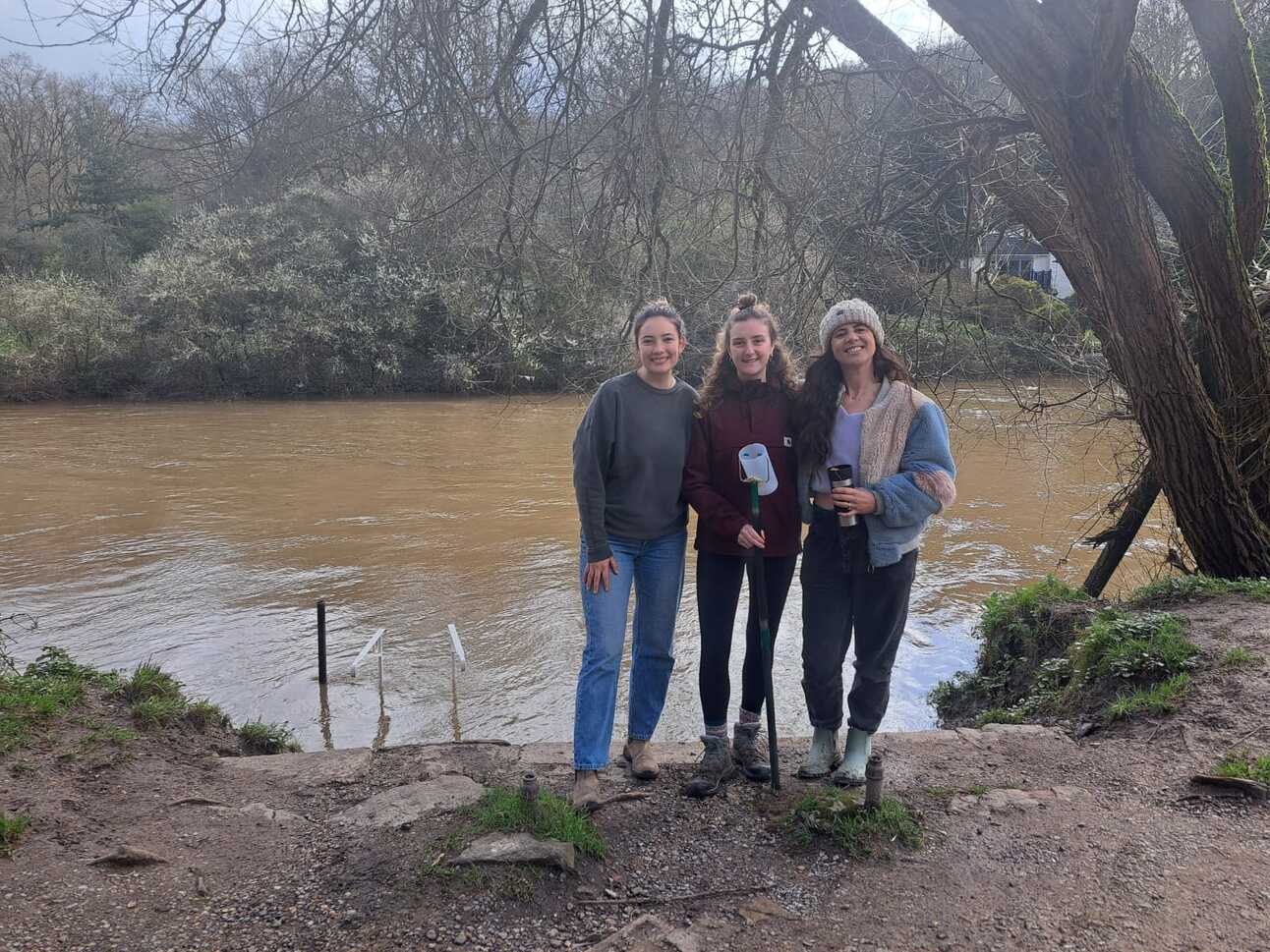
(L-R) Eva Perrin and Emma Nicol from Conham Bathing, with film maker Charlotte Sawyer at the Avon’s riverbank
In August 2024, Conham River Park received its worst water quality testing results for two consecutive weeks since the group began sampling. Clearly, the problem is worsening, despite enormous public outcry in recent years.
Campaign founder Becca Blease said: “Our decision-making structures currently do not recognise that the Avon has any inherent right to flow, to be free from pollution, or to sustain life — whether human or not.
“We’ve seen what happens when the rights of rivers are not recognised: industries pollute and exploit rivers for profit, authorities largely turn a blind eye, and people are excluded from having a fulfilling relationship with these beautiful, essential ecosystems.”
The Conham group decided to launch its Thriving Avon Charter in a move to raise the profile of rights for rivers, encouraging “those living along the Avon to cherish and preserve their river for generations to come”.
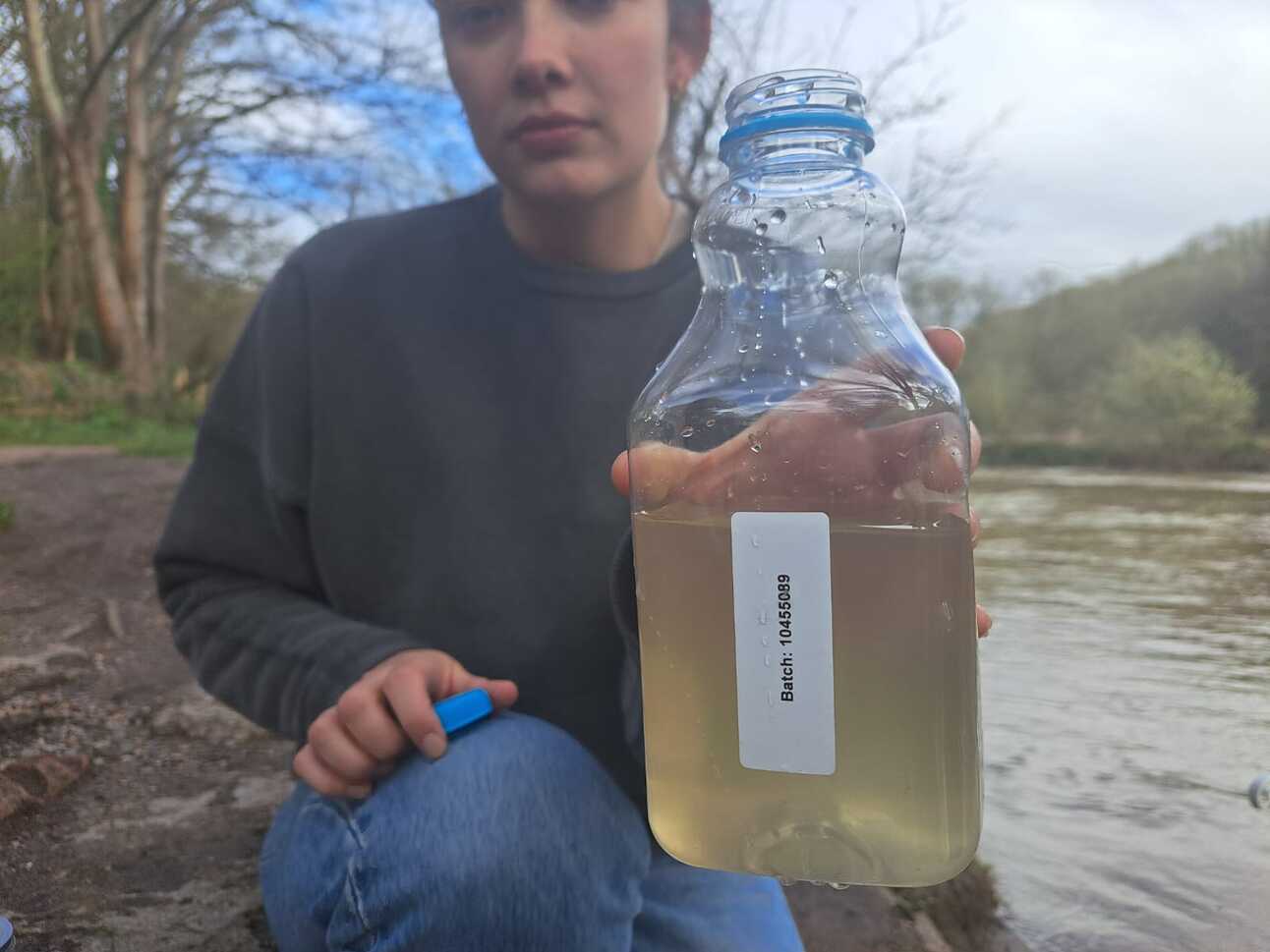
The group sample the Avon themselves, which they send to Wessex Water for testing
Film maker Charlotte Sawyer has been following the Conham campaign and recently released a documentary titled Rave On for the Avon. She was filming the March for Clean Water for her upcoming feature the Wye Way.
She told HANA News in Parliament Square: “I’m here trying to tell intimate, human stories of people who love the river.
“There’s a bit of a funny place that we’ve got to where rivers are seen as this resource, but everyone who’s fighting to protect rivers don’t. They see them as something beautiful that deserves protecting.”
“For me, I didn’t understand that I could have a relationship with a river. Now that I have one, I realise that it brings me so much peace. I need it to feel calm near water.”
Various academic studies suggest that spending time around rivers and bodies of water can significantly benefit both physical and mental health.
Wessex Water told HANA News: “We were pleased to regain our status as a leading 4 Star company in the Environment Agency’s annual performance assessment for 2023. However, we’re committed to making significant and lasting improvements to how we operate for the benefit of the environment.
“It’s important to make clear that Wessex Water does not impact on water quality in the River Avon alone. There will always be bacteria in rivers, coming from wildlife, agricultural run-off and roads as well as regulated storm overflows and treated sewage discharges.”
The national problem
Amy Fairman from River Action UK, who organised the march in London, told HANA News: “(The march) came about following the general election, where we saw the Labour government make some great promises around restoring our rivers, seas and lakes.
“We’ve seen some movement in the right direction, such as the Water Special Measures Bill and promises of legislation further down the line. We need to see real action from the new government to enforce the law and hold polluters to account.”
The Water (Special Measures) Bill, introduced to the UK Parliament on September 4, 2024, aims to enhance the regulation of water companies in England and Wales.
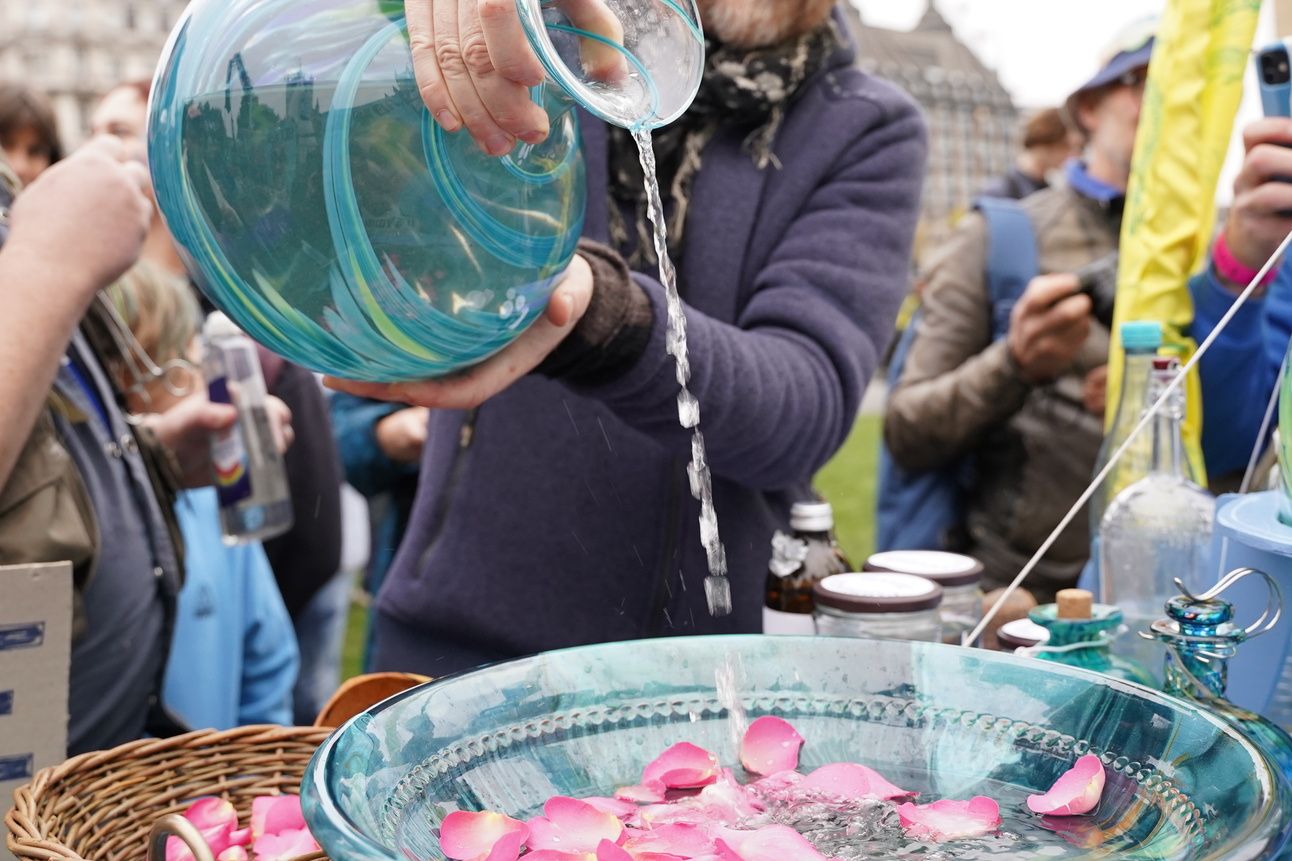
Protesters pour samples from their local rivers in a ceremony
Provisions of the bill include the possibility of imprisonment for senior executives who obstruct investigations by regulators such as the Environment Agency or the Drinking Water Inspectorate.
The bill also empowers the Water Services Regulation Authority (Ofwat) to block performance-related bonuses for executives of water companies failing to meet specified environmental and customer service standards.
Water companies in England and Wales paid out over £9.1 million in bonuses to bosses and executives this year.
“It’s not just the water sector as well,” Amy Fairman continued, “We see big industrial and agricultural organisations, essentially destroying agricultural land and spreading huge amounts of manure that our land can’t handle and that washes out into our waterways.”
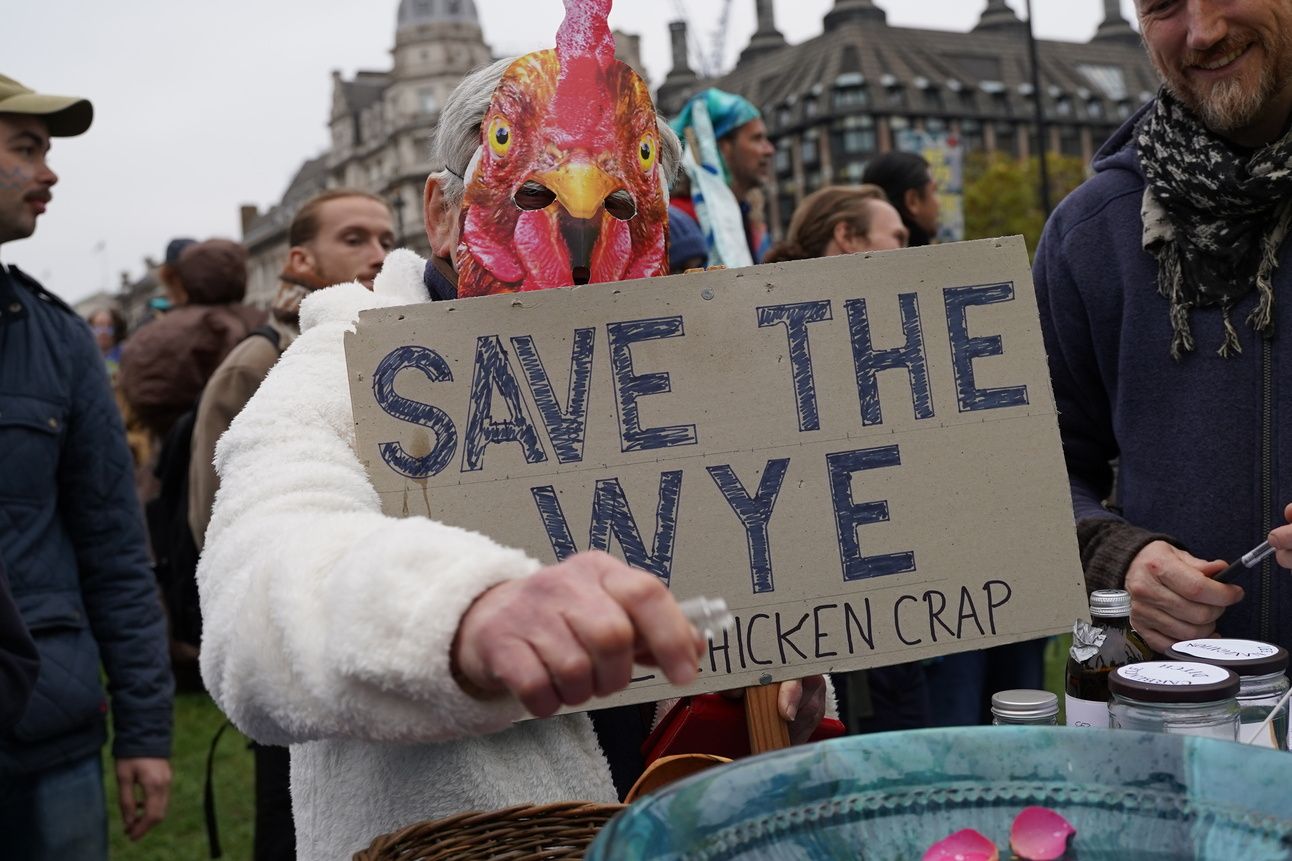
The River Wye is heavily polluted from agricultural runoff from chicken farms
Amy Fairman described the situation as “pollution for profit”.
“We see payouts of over £70 billion since privatisation,” she said, “A buildup of over £50 billion of debt. There hasn’t been one single year when investment has exceeded what has been taken out of the water industry.
“These profits are ultimately being shipped off-shore to private equity investors,” Fairman claimed, “The shareholders of a lot of our utilities industry are owned by multinational corporations.”
In August 2021, Macquarie Asset Management, an Australian firm, acquired a majority stake in Southern Water's parent company, Greensands Holdings.
Prior to Macquarie's acquisition, Southern Water was owned by a consortium of infrastructure investors, pension funds, and private equity firms, including JP Morgan Asset Management and UBS Asset Management.
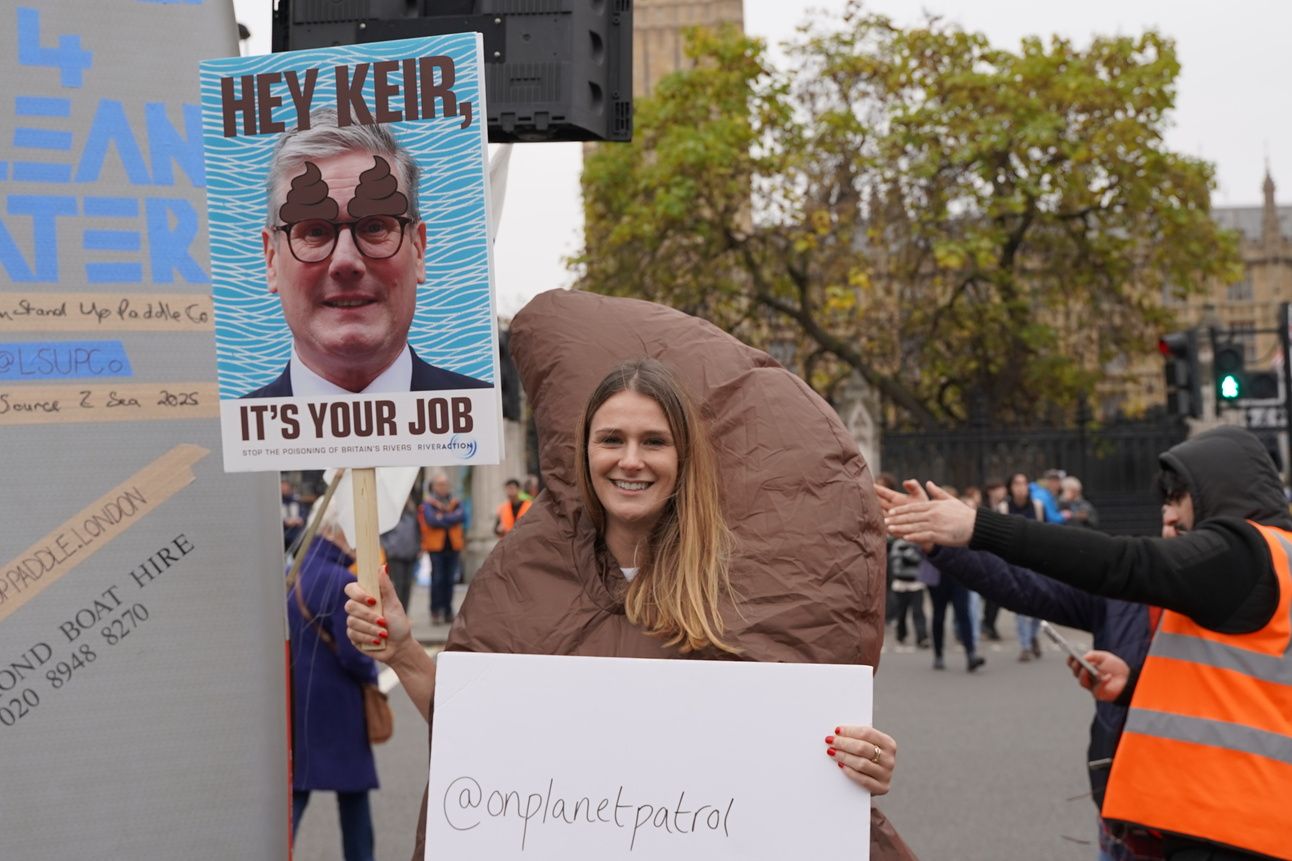
A protester aptly dressed as a giant turd
In an open letter to campaigners, the Secretary of State for Environment, Food & Rural Affairs, Steve Reed MP, said: “The health of our waterways is a matter of significant concern to us all, and it is encouraging to see so many people… actively engaged in this important cause.
“This is why I want to reiterate this Government’s commitment to cleaning up our rivers, lakes and seas.”
Mr Reed stated that the Water (Special Measures) Bill was “not enough” and added, “I have launched an Independent Commission into the water sector in what will be the largest review in the water sector since privatisation.”
All photos credited to Louis Inglis unless otherwise specified
